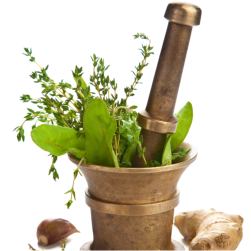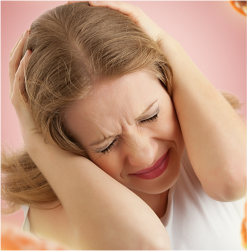 It’s a proven fact that women are 3 times more prone to migraines. If that wasn’t bad enough, menstruation also has an impact on migraines. Some women have the worst of both worlds between typical migraines and menstrual migraines combined.
It’s a proven fact that women are 3 times more prone to migraines. If that wasn’t bad enough, menstruation also has an impact on migraines. Some women have the worst of both worlds between typical migraines and menstrual migraines combined.
Migraines by their very nature are a complex condition that doctors are still trying to understand. Different people have different migraine triggers and even the symptoms may differ greatly. It all depends on the person.
One lady may feel fine after 30 minutes while another may feel nauseous, have partial vision loss and even feel debilitated to the point where she can’t function normally. It all depends on the person affected.
About Half of All Women Experience Some Form of Menstrual Migraines
About 50 percent of women experience migraine before and during their menstrual cycle. This is due to the hormonal changes within the body at this time. Most of the time they would have had their first migraine attack during the onset of puberty when they had their first period.
It can be extremely stressful and traumatic to have both migraines and periods at the same time.
The migraines are triggered by fluctuating estrogen levels and the release of a fatty acid known as prostaglandin. The best way to find out if there is connection between your menstrual cycles and migraines will be to keep a journal and record down migraine attacks and the date and time they occur.
Track your menstrual cycles and see if a pattern emerges over a period of 3 months.
Menstruation may be a trigger for migraines but there is also a condition known as menstrual migraine. It is the result of falling estrogen levels and menstrual migraine has 2 subtypes. There are menstrual migraines with aura and menstrual migraines without aura.
It has been noted that migraines without aura usually precede menstruation 2 days earlier and tend to occur right up till the third day of the period.
There are treatment options available to women suffering from menstrual migraines and your doctor will be the best person to advice you. In most cases, over-the-counter medication is not going to be enough to deal with menstrual migraines because it is hormone related.
The treatment your doctor will prescribe you will depend on the severity of the migraines, the regularity of your menstrual cycles, the type of periods you have and other factors that must taken into consideration too.
If a woman has heavy periods accompanied by painful migraines, the doctor will usually prescribe an anti-inflammatory painkiller. Low levels of estrogen will mean having to get more estrogen into the system.
This can be done through oral supplement, gel or skin patches. It is best to top up your estrogen levels before and during your period. Using estrogen gels are an excellent way for the body to absorb estrogen into the blood stream.
You must exercise caution when taking estrogen pills and they should be avoided if you are pregnant or trying for a baby. Once again, you should speak to your doctor. Don’t take any chances and self-medicate. Menstrual migraine symptoms can be alleviated to a large degree if you are well-prepared. So, do what needs to be done so that you will not be subject to excruciating headaches. Forewarned is forearmed.


 Migraine sufferers are constantly looking for ways and means to prevent migraines from occurring. The pain from these headaches can be so bad that their daily life is affected and they are no able to function properly due to the suffering.
Migraine sufferers are constantly looking for ways and means to prevent migraines from occurring. The pain from these headaches can be so bad that their daily life is affected and they are no able to function properly due to the suffering.
 Migraines are possibly one of the very few problems that makes taking a hammer to your own skull seem an appropriate solution. They are uncomfortable, painful and can feel debilitating if the headaches are intense enough.
Migraines are possibly one of the very few problems that makes taking a hammer to your own skull seem an appropriate solution. They are uncomfortable, painful and can feel debilitating if the headaches are intense enough.